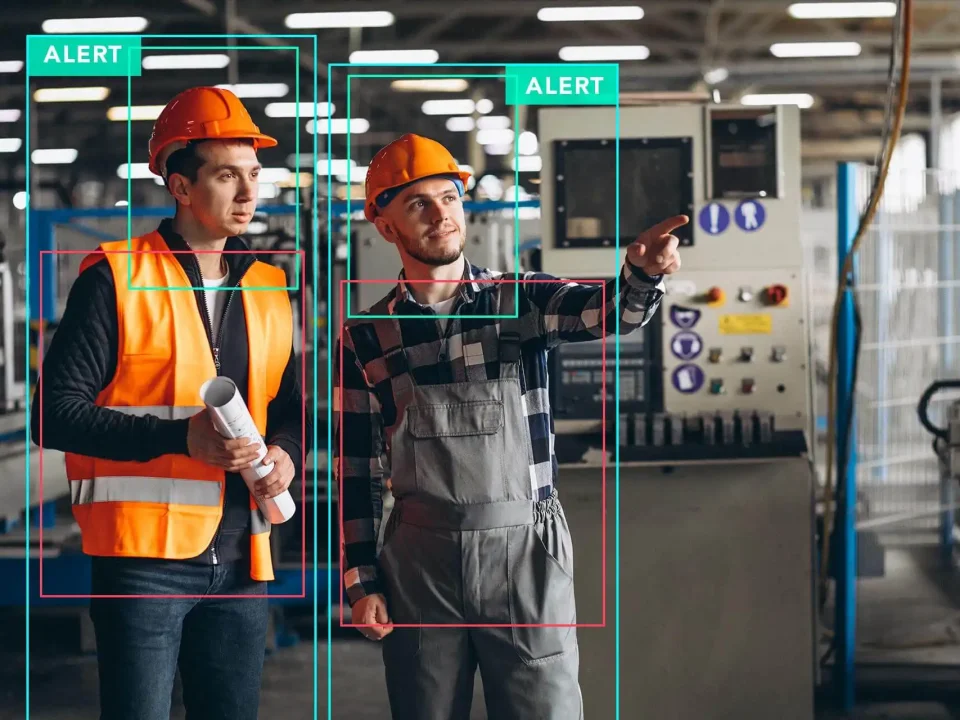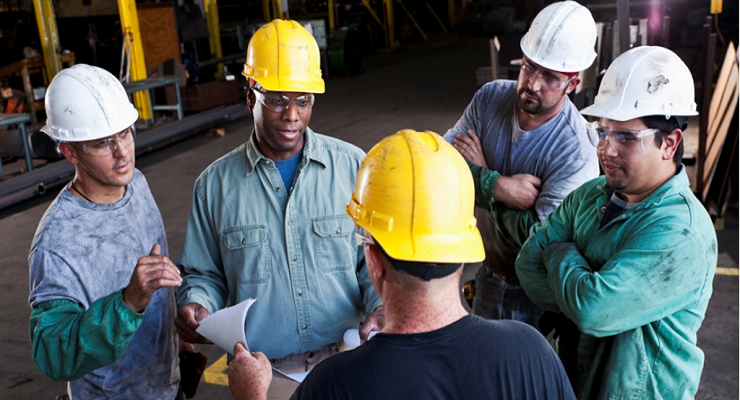Building a Culture of Safety in Gurugram, Manesar & Bawal Industrial Areas

Expert EHS & Fire Safety Solutions for Industries in Ludhiana, Ropar, and Mohali
November 18, 2025
HAZOP Study & Process Safety Management in Surat – Why Every Chemical Plant Needs It in 2025
November 24, 2025Gurugram, Manesar, and Bawal are three of India’s most important industrial belts. These regions house automotive giants, heavy engineering units, IT parks, warehouses, logistics hubs, electronics companies, pharma plants, food processing units, and large manufacturing clusters. With thousands of workers, high-speed production lines, chemicals, machinery, and complex operations running around the clock, safety can’t be treated as a side activity. It has to be a core part of the work culture.
But the truth is harsh:
Most accidents in factories happen because safety is treated like a requirement, not a value.
When safety looks like paperwork, people ignore it. When safety looks like extra effort, shortcuts begin. When safety looks like a cost, companies postpone it. And when industries grow faster than their safety systems, incidents are inevitable.
Building a real safety culture in these industrial areas isn’t about slogans. It’s about daily habits, leadership commitment, continuous training, strong systems, and the willingness to fix problems before they turn into incidents.
This is where The Safety Master helps industries shift from compliance-driven safety to culture-driven safety.
Below is a complete 1500-word breakdown of how industries in Gurugram, Manesar, and Bawal can build a stronger, more reliable, and sustainable safety culture.
Why These Industrial Regions Need a Strong Safety Culture
The three industrial zones share similar challenges:
- High workforce density
- Multiple contractors and visitors
- Complex machinery and automation
- Electrical load concentration
- Large-scale logistics activity
- Flammable materials and chemicals
- High production pressure
- 24×7 operations
These conditions create several risks:
- Machine entanglement
- Chemical exposure
- Fire outbreaks
- Electrical faults
- Slips and falls
- Material handling accidents
- Forklift and crane hazards
- Confined space incidents
- Lack of emergency readiness
A strong safety culture reduces these risks before they escalate.
What Does a Safety Culture Actually Mean?
A safety culture isn’t posters, helmets, or compliance alone.
It means:
- Workers speak up about hazards without fear
- Supervisors take safety actions immediately
- Managers treat safety issues as urgent
- Contractors follow the same standards
- Equipment is maintained regularly
- Emergency drills are taken seriously
- Training is continuous
- Safety communication is open and frequent
A culture of safety means safety isn’t a box to tick. It’s a way of working.
1. Start With Strong Risk Identification
Most accidents start with a hazard no one noticed or paid attention to.
A highly structured method like a Hazop Consultant assessment helps industries identify hidden risks related to:
- Process deviations
- Operating conditions
- Human error
- System failures
- Equipment faults
- Unsafe reactions
- Pressure and temperature variations
For automotive, chemical, pharma, food, and engineering plants, this kind of study is essential.
You can’t build a safety culture if you don’t even know where your risks truly are.
2. Strengthen Fire Safety and Emergency Readiness
Manesar and Bawal industrial zones have recorded multiple fire accidents in warehouses, automotive plants, and chemical storage areas. Weak fire systems, blocked exits, untested alarms, and untrained employees are common.
A proper Fire Audit Consultant assessment ensures your facility is prepared for:
- Fire loads
- Smoke movement
- Electrical risks
- Fuel sources
- Storage patterns
- Evacuation plans
- Hydrant and sprinkler performance
Most companies believe they are “fire safe” because they have extinguishers. But fire safety is not equipment; it’s a system. A real audit exposes gaps and builds readiness that protects lives.
3. Build Strong Safety Processes Through Comprehensive Audits
A full internal safety evaluation helps industries understand their true safety performance.
A Safety Audit Service supports companies by identifying:
- Compliance gaps
- Unsafe behaviors
- Equipment failures
- Poor housekeeping
- Chemical storage issues
- Electrical risks
- Missing PPE implementation
- Weak training levels
- Contractor-related hazards
This kind of audit gives management a clear picture of what needs to be fixed immediately and what requires long-term planning.
Without this insight, safety efforts remain scattered and ineffective.
4. For Technical Industries, Process Safety Matters the Most
Large automotive plants, forging units, chemical units, and engineering setups face risks linked to pressure, heat, reactions, automation, and hazardous materials.
A Process Safety Management Consultant ensures:
- Safe operating limits
- Proper alarm and interlock management
- Mechanical integrity
- Safety-critical equipment maintenance
- Pre-startup safety reviews
- Hazard communication
- Emergency planning
- MOC (Management of Change)
- Robust SOPs
- Chemical compatibility analysis
Process safety prevents catastrophic failures — the kind that disrupt operations completely.
5. Leadership Has to Set the Tone
Safety culture begins at the top. When leadership rushes production, workers follow. When supervisors ignore PPE, workers ignore it too. When managers accept shortcuts, shortcuts become normal.
Leaders can build safety culture by:
- Setting clear expectations
- Rewarding safe behavior
- Fixing safety concerns immediately
- Holding supervisors accountable
- Leading by example
- Making safety part of daily discussions
- Investing in modern systems
When leaders treat safety seriously, employees follow.
6. Continuous Training Keeps the Culture Alive
Training creates awareness, skill, confidence, and discipline.
Without training, even well-designed systems fail.
Training programs required in Gurugram, Manesar, and Bawal include:
- Fire and emergency training
- First aid and CPR
- Machine safety
- Chemical handling
- Electrical safety
- Work-at-height training
- Confined space safety
- Forklift and crane training
- LOTO procedures
- Behaviour-Based Safety
These regions have huge contractor involvement. Contractors must be trained too — otherwise safety culture collapses.
7. Communication Creates Safety Awareness
Safety culture grows when communication is:
- Frequent
- Clear
- Visual
- Positive
- Two-way
Industries should use:
- Toolbox talks
- Safety notice boards
- Digital screens
- Safety newsletters
- Near-miss sharing programs
- Daily briefings
Good communication turns safety into a shared responsibility, not a rulebook.
8. Strong Emergency Preparedness Builds Confidence
Every workplace must be prepared for:
- Fire
- Chemical leak
- Electrical fault
- Medical emergency
- Explosion
- Structural failure
- Gas release
Emergency drills should be:
- Realistic
- Regular
- Evaluated
- Recorded
- Improved after each drill
When employees know what to do, panic reduces and incident response becomes faster.
9. Contractor Safety Is Non-Negotiable
A huge percentage of accidents in these industrial areas involve contractors.
Why? Because:
- They are not trained enough
- They are not supervised properly
- They take more risks
- They work in hazardous zones
- They rush work to finish quickly
A strong safety culture means contractors must follow the same standards as your workers.
Contractor safety programs include:
- Gate-level screening
- ID and induction training
- Job-specific training
- Permit-to-work system
- Supervision checks
- PPE enforcement
- Penalties for violations
If contractors are unsafe, your facility is unsafe.
10. A Safety Partner Strengthens the Entire System
Industries that want long-term improvement rely on ongoing support, not one-time audits.
A trusted Safety Consultant in India provides:
- Annual safety planning
- Training calendars
- Safety committee support
- Fire and emergency improvements
- Process safety strengthening
- Culture-building programs
- LOTO implementation
- Incident investigation support
- Regular audits
- Behavioral safety programs
This kind of partnership helps industries maintain steady improvement month after month.
The Impact of a Strong Safety Culture
When companies in Gurugram, Manesar, and Bawal build a strong safety culture, they see benefits like:
- Fewer accidents
- Higher productivity
- Lower downtime
- Reduced insurance cost
- Better legal compliance
- Stronger employee morale
- Better product quality
- Lower maintenance cost
- Higher operational efficiency
- Stronger industry reputation
Safety culture doesn’t slow down production — it protects it.
Final Thoughts
Building a culture of safety in the industrial belts of Gurugram, Manesar, and Bawal isn’t optional anymore. With growing manufacturing, automation, logistics, and chemical operations, industries need modern safety systems, trained employees, and strong leadership commitment.
The Safety Master helps organizations build this culture through risk assessments, fire audits, process safety programs, training, safety audits, contractor safety improvements, and long-term consulting.
A strong safety culture isn’t built in a day.
But with the right knowledge, systems, and continuous improvement, it becomes the backbone of every successful operation.




